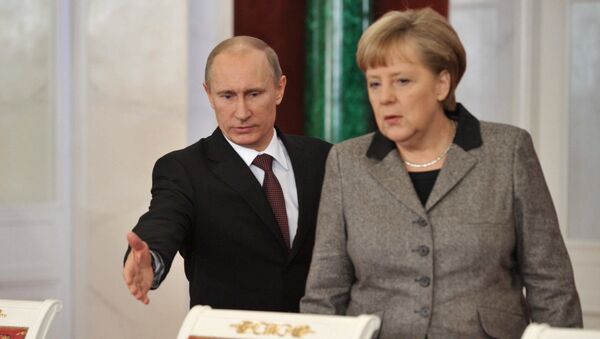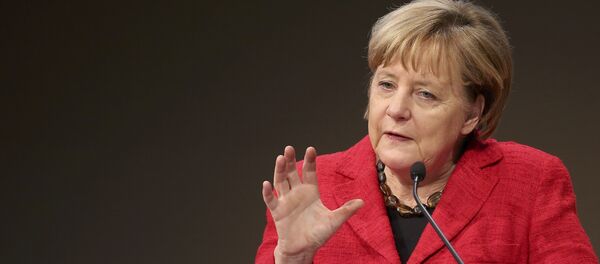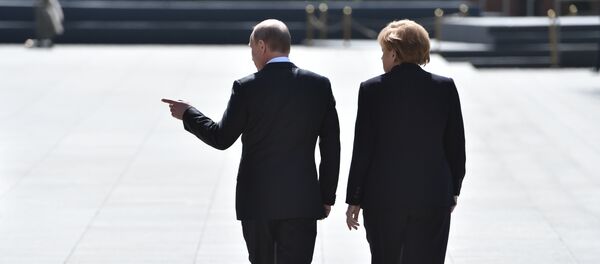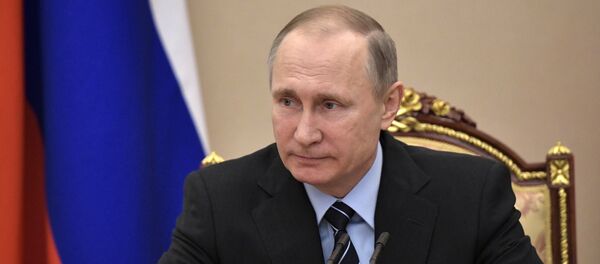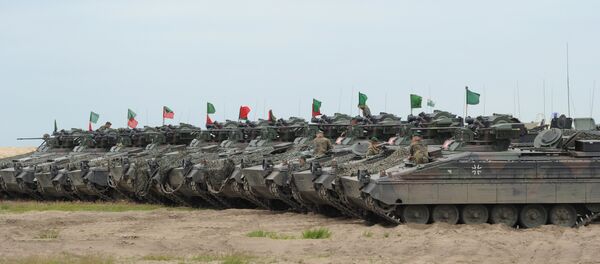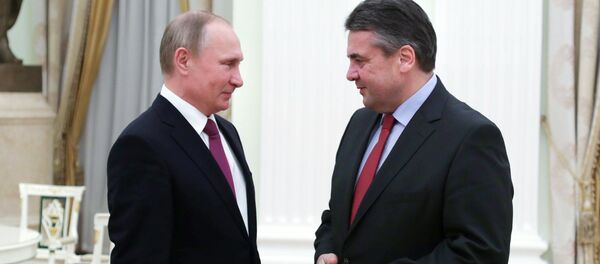On December 26, 1991, Germany was the first among the leading countries to recognize the Russian Federation as the former USSR’s legal successor.
The legal base of Russian-German relations is made by the Treaty on Good-Neighborly Relations, Partnership and Cooperation of November 9, 1990 and the Joint Statement of the President of the Russian Federation and the Federal Chancellor of the Federal Republic of Germany of November 21, 1991. The principal importance also has the Treaty on the Final Settlement with Respect to Germany of September 12, 1990.
Russian-German relations are among the vital issues of the European and global politics, which have an impact on the settlement of numerous global problems.
Russian President Vladimir Putin paid his first official visit to Germany in June 2000. In his turn, then Federal Chancellor Gerhard Schroeder visited Russia on January 7, 2001 with his wife within an informal visit.
The intensity of top-level bilateral contacts did not reduce with Angela Merkel’s election as German chancellor in November 2005. The two countries’ leaders met several times a year to discuss not only Russian-German relations but also global issues and international relations.
The importance of ties with Germany for Russia retained after Dmitry Medvedev was elected president in 2008. Germany was the first European country Medvedev visited as Russian president in June 2008.
In November 2009, Medvedev took part in celebrations of the 20th anniversary of the fall of the Berlin Wall in the German capital. On May 9, 2010, Merkel attended Moscow celebrations dedicated to the 65th anniversary of victory over Nazi Germany.
Then German Federal President Christian Wulff paid a state visit to Russia on October 11-15, 2010.
President Vladimir Putin paid a working visit to Germany on April 7-8, 2013. The Russian leader and Merkel attended the opening ceremony of the Hannover Messe, the world's biggest industrial fair.
On May 10, 2015, Merkel visited Moscow to attend the celebrations of the 70th anniversary of the victory over Nazi Germany. Together with Putin they laid wreaths at the Tomb of the Unknown Soldier.
On September 4, 2016 Putin and Merkel met on the sidelines of the G20 summit in China to discuss the Ukraine crisis and the situation in Syria.
The two leaders also met in Berlin on October 20, 2016 during the Normandy Four summit and talks on the situation in Syria.
Top-level interstate consultations have been held since 1998, mostly on an annual basis, with the participation of both countries’ government members. The latest, 14th round, was held in Moscow on November 16, 2012. The next round, scheduled for April 2014, was postponed on the initiative of Germany because of the Ukrainian crisis.
A high-level working group on strategic cooperation in the spheres of economy and finance was established in 2000 on the initiative of the Russian president and Germany’s federal chancellor.
In 2003, a high-level bilateral working group on security policy issues was established based on the decision of the two countries’ leaders.
Foreign ministers of Germany and Russia also maintain regular contacts. Russian Foreign Minister Sergey Lavrov has close friendly ties with German President Frank-Walter Steinmeier, who had been serving as foreign minister until January 2017. Their dialogue "had an unchangeable constructive character" and was aimed at creation of a positive agenda of Russian-German relations, according to Lavrov.
On February 16, 2017, Lavrov had his first personal meeting with new German Foreign Minister Sigmar Gabriel on the sidelines of the G20 foreign ministers’ informal consultations in Berlin.
On February 18, Gabriel took part for the first time in a ministerial meeting of the Normandy Four (Germany, Russia, Ukraine and France) on the sidelines of the Munich Security Conference.
Russia and Germany are participants of the Normandy process and co-authors of the Minsk agreements alongside with France and Ukraine. They have regular contacts on the Afghan and Libyan settlement.
In the context of the Ukrainian events, Berlin took the course on the reduction or total freeze of the development of bilateral interaction in almost all spheres. Germany initiated the cancellation of the next round of the interstate consultations and regular meetings of the working group on strategic cooperation in the economy and finance, the working group on security policy, and blocked the meetings within other formats.
Germany was among the most active supporters of the European Union’s sectoral sanctions to punish Russia for the alleged annexation of Crimea and destabilizing the situation in Ukraine.
Germany remains one of Russia’s principal foreign trade partners, accounting for 8.7 percent of Russian foreign trade turnover (second-biggest after China with 14.1 percent).
Russian-German trade continues to shrink, however. According to Russia’s Federal Customs Service, it decreased by 11.1 percent in 2016 down to $40.7 billion compared to the previous year. Russian exports to Germany plummeted by 16.1 percent to $21.3 billion and imports from Germany fell by 4.8 percent to $19.4 billion.
Russian imports from Germany in 2016 mostly comprised machineries, equipment and vehicles with a total of 53.26 percent, chemicals with 28.46 percent, metals and metal goods (6.37 percent), foods and agricultural stock (5.16 percent), timber, pulp and paper (2.59 percent), and footwear and textiles (1.02 percent).
German businesspeople are eager to stay in the Russian market. Direct German investment in Russia was estimated at 1.73 billion euros ($1,88 billion) in the first half of 2016 against 1.78 billion throughout 2015. Investment in the second quarter of 2016 made 655 million euros, three times more than in the same months of 2015. The total volume of German investment exceeds $13 billion, according to the Bank of Russia. There are 5,600 businesses with German capital participation in the Russian market, including about 800 businesses with 100 percent of German capital, with a total turnover exceeding $50 billion and employing 270,000 workers.
Steady and lasting contacts link 23 Russian regions with 14 German states, while the number of partner cities exceeds a hundred.
Civil society contacts play a significant role in Russian-German relations. The Petersburg Dialogue forum of Russian and German civil societies was established in 2001 on the initiative and under the patronage of President Vladimir Putin and Federal Chancellor Gerhard Schroeder. The creation of a firm foundation for the development of Russian-German relations through built-up contacts of the two countries’ civil societies remains the main goal of the forum.
Cross years of Russia in Germany and Germany in Russia were held in 2012-2013. They received development in 2014-2015 by another successful and ambitious bilateral project – the Years of Russian and German Language and Literature in Germany and Russia. A Russian-German youth exchange cross year is underway in 2016-2017 under the two foreign ministries’ auspices. Another Russian-German Partner City Conference is due to take place in the Russian city of Krasnodar on June 28-30, 2017.
The Russian-German cross year of regional and municipal partnerships is held in 2017-2018 under the two foreign ministers’ patronage. The possibility of continuing the cross year practice is being discussed.
The intergovernmental commission on Russian Germans’ affairs, the mixed commission on scientific and technical cooperation, the mixed commission on the study of contemporary history of bilateral relations, the Russian-German council for youth cooperation and other joint bodies are functioning.
There are over 3,000 Soviet soldiers’ graves in Germany with 760,000 Russian/Soviet citizens are buried. Germany maintains the graves in compliance with the intergovernmental agreement on the protection of war graves of December 16, 1992.

